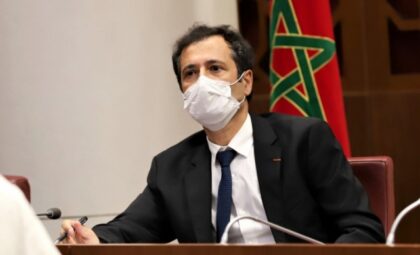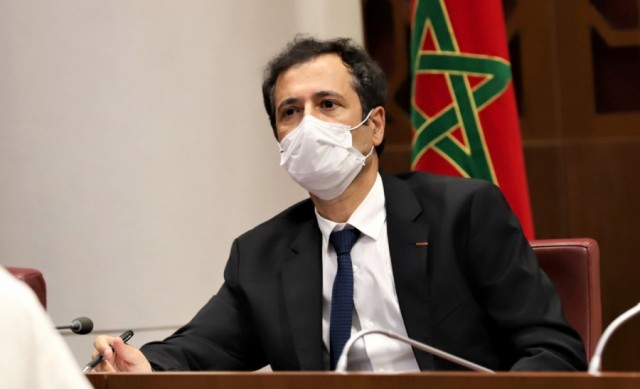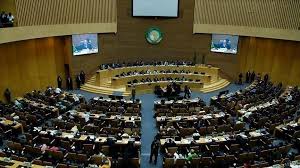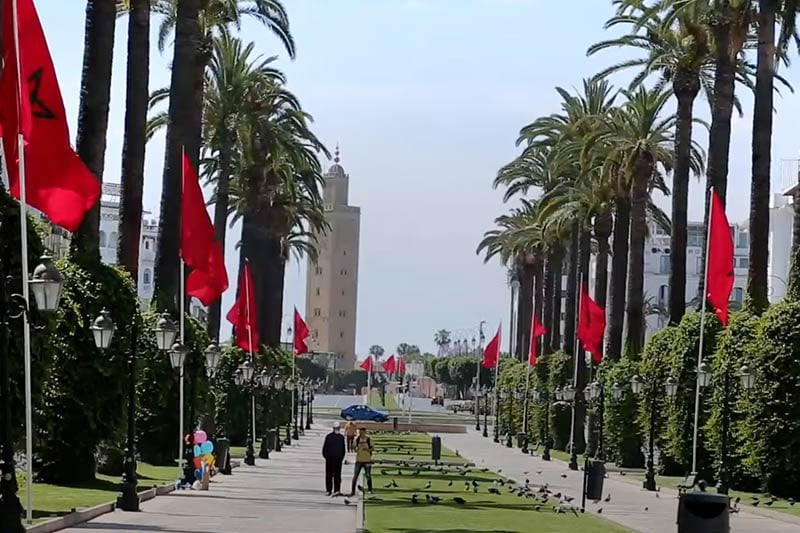 The $4.8 billion strategic investment fund, set up part of a stimulus package of 120 billion dirhams ($12.8 bln) to help the economy recover from the coronavirus impact, will give priority to productive activities and back up the financing of major investment projects, said, on Tuesday in Rabat, Minister of Economy & finance Mohamed Benchaâboun.
The $4.8 billion strategic investment fund, set up part of a stimulus package of 120 billion dirhams ($12.8 bln) to help the economy recover from the coronavirus impact, will give priority to productive activities and back up the financing of major investment projects, said, on Tuesday in Rabat, Minister of Economy & finance Mohamed Benchaâboun.
The fund’s mission is to finance major infrastructure projects through public-private partnerships. The fund also aims to support companies with equity capitals in order to boost their job creation potential, the Minister told the Finance and Economic Development Committee at the House of Representatives that is examining the bill setting the fund’s legal framework.
The selection of projects to be financed will be made on the basis of their impact on employment, he noted, stressing in this regard, the creation of sectoral or thematic funds, intended for investment in infrastructure projects and the promotion of SMEs and innovation.
The minister explained that Morocco’s amended 2020 Finance Bill allocates MAD 15 billion ($1.62 billion) from the state’s general budget to the fund. The remaining MAD 30 billion ($3.23 billion) will be mobilized through partnerships with national and international financial institutions.
The $12.8 bln stimulus package was unveiled by King Mohammed VI at the State of the Nation speech delivered on July 29.
Benchaaboun noted in this vein that the royal speech carries a strategic vision for the management of the current crisis linked to the coronavirus pandemic.
The Sovereign, the Minister went on, highlighted in his speech the need to put in place an ambitious plan for economic recovery and a major structural reform in the social field, mainly the generalization of social coverage and the acceleration of public sector reform.
To give concrete substance to the royal guidelines, immediate measures will be taken for their full implementation, he said, noting that these measures are based on three fundamental priorities, namely the generalization of social security, public sector reform and the launch of an ambitious plan to revive the economy.
After explaining the financing and goals of the strategic investment fund, the economy minister presented the Moroccan government’s plan to generalize social security.
He said the rapid implementation of the generalization of social security will make it possible to generalize compulsory health insurance (AMO), family allowances and retirement pensions for Moroccan households not benefiting from social security coverage, and unemployment stipends.
One of the issues with current social security plans is that Moroccan housewives are fully dependent on their partners and lose their benefits in case of a separation, Benchaaboun highlighted. He pledged to address the issue in the future reform.
The reform will begin in 2021 and take place gradually over a period of five years, the minister said. The first phase, from 2021 to 2023, will focus on generalizing AMO and family allowances. Meanwhile, the 2024-2025 phase will generalize pensions and job loss compensations.
Benchaaboun expressed the government’s willingness to open a constructive dialogue with its social partners. The discussions would revolve around the timetable, the legal framework, and the reforms’ financing and implementation methods.
The Moroccan government will take a series of measures to guarantee the success of this “major” reform project, Benchaaboun pledged. The measures include the reform of legal frameworks, the rehabilitation of hospitals, and the organization of care pathways.
The measures also include the creation of a unified social register, the reform of social security systems’ governance, and the reform of social contribution systems for professionals.
The Moroccan government also plans to abolish the RAMED medical assistance system, which offers medical insurance to Moroccans in precarious situations, Benchaaboun announced. The AMO system will begin covering this category of citizens. It will ensure medical coverage of the same quality for all Moroccans in spite of their financial contributions.
For the public sector reform, Benchaaboun said the government will focus on resolving the structural dysfunctions of public establishments and enterprises. The reform aims to synergize public enterprises and strengthen their economic and social efficiency.
The government is set to create a national agency responsible for evaluating the performance of public enterprises, the minister also announced.



